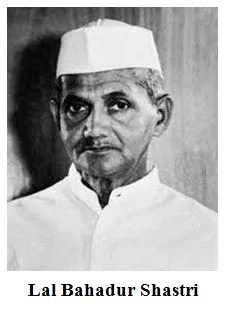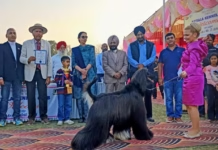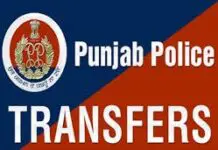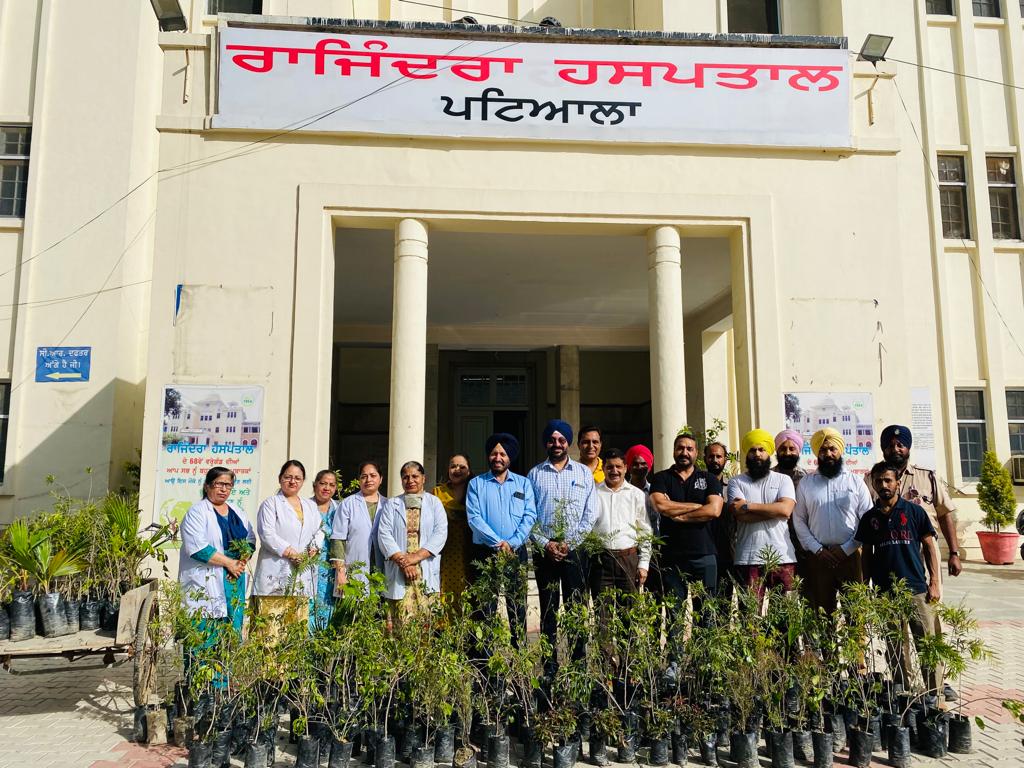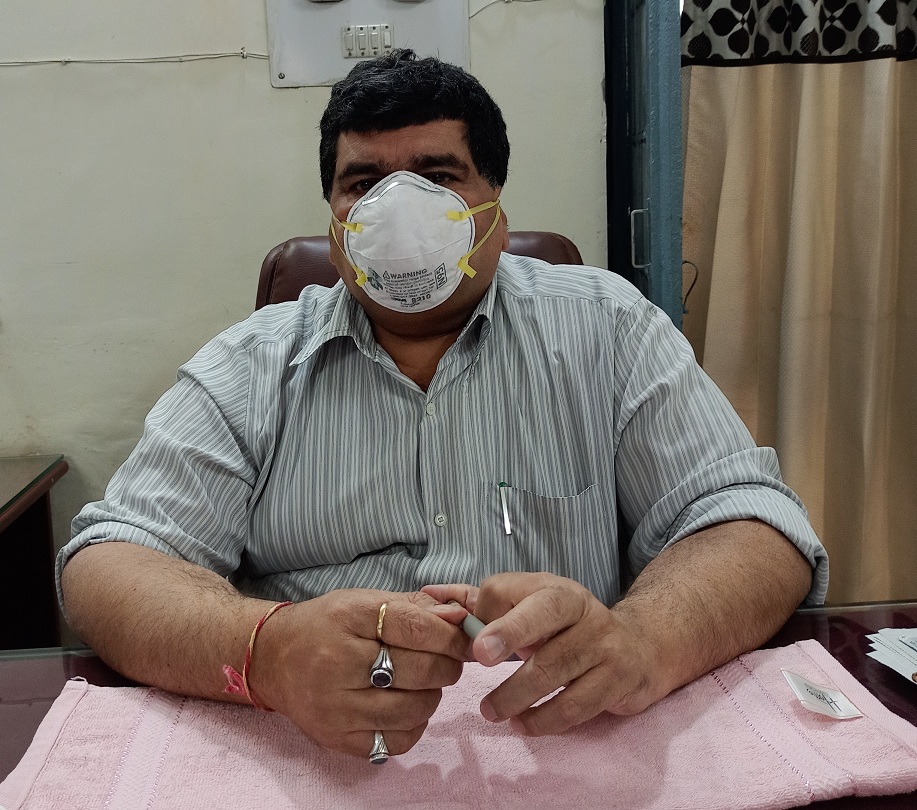Lal Bahadur Shastri’s 57 Death Anniversary– A Great Son of India-Puri
Jaswant Singh Puri
A matchless patriot, an eloquent orator in Parliament, a sound administrator, a remarkable statesman, a skilled negotiator, a man of selfless nature and a symbol of honesty and simplicity, Lal Bahadur Shastri, an embodiment of virtues was born on October 2, 1904 to Sharada Prasad Srivastava and Ramdulari Devi in Mughalsarai. He was the Second Prime Minister of India from 10 June, 1964 to 11 January, 1966. He shares his birthday with Mahatma Gandhi who was born on October 2, 1869. During a short stint as Prime Minister, he rose to the occasion for the nation. He also served as the Home Minister of the country from 1961 to 1963 and aided the White and Green Revolutions in India to increase the production of milk and foodgrain production. He was a great son of Mother India whom we lost on 11 January, 1966 at Tashkent.
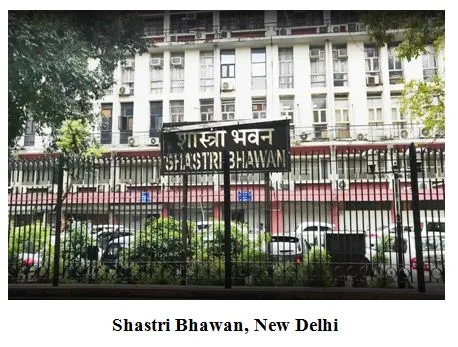
Lal Bahadur Shastri received his school education from Harishchandra High School, Varanasi where his teacher Nishkameshwar Prasad Misra played a good role to mould his personality and imbibe in him the quintessence of self-reliance and earnest fortification of mind and spirit. He studied in the Kashi Vidyapitha where he graduated with the title of ‘Shastri’. He was conferred the degree of ‘Shastri’ on the completion of his studies in Philosophy and Humanities and he was often addressed by the people as ‘Shastri’. He also gave a green signal to Mahatma Gandhi’s call of freedom struggle. He also enrolled himself as a “Life Member of the ‘Servants of the People Society” in 1926 which was founded by Lala Lajpat Rai. In May 1928, he was wedded to Lalita Devi from Mirjapur.
As a staunch follower of Gandhi, he was imprisoned several times. He held important positions in the Congress Party of the State of the United Provinces, now called Uttar Pardesh State. In 1930, he took active part in the Salt Satyagraha for which he was imprisoned for more than two years. He joined the Parliamentary Board of UP as the Organizing Secretary in 1942.
Lal Bahadur Shastri became the Parliamentary Secretary in Uttar Pradesh and afterwards, rose to the position of Minister of Police and Transport in 1947. He appointed women conductors for the first time. Since he was the Minister Incharge of the Police Department, he promulgated the order that police should use jets of water and not lathis to disperse the crowd. Shastri was inducted as the General Secretary of the All India Congress Committee in 1951. He got success to carry out the publicity in connection with the elections. He was elected to the Rajya Sabha in 1952 from Uttar Pradesh. He rose to the position of Minister for Transport and Communication in 1957 and later on the Minister of Commerce and Industry. He became the Home Minister in 1961 and appointed the Committee on ‘Prevention of Corruption’. He invented the well-known ‘Shastri Formula’ which was concerned with language agitation in Assam and Punjab. He was elevated to the position of Prime Minister on 9 June, 1964 after the demise of Pandit Jawaharlal Nehru on 27 May 1964.
As a Prime Minister, he followed the policy of Non-alignment of Nehru and made good relations with China. He signed an agreement with the Prime Minister Srimavo Bandaranaike of Sri Lanka in connection with the status of Indian Tamils in Ceylon called Srimavo Shastri Pact. He paid official visits to Rangoon, Burma and founded good bondage with them.
It was during Shastri’s tenure as P.M. that India faced an invasion from Pakistan in 1965. He allowed full liberty to the Security Forces to pay back tit for tat and encouraged them with the words “Force will be met with Force.” The war ended on 23 September, 1965. On January 10, 1966, Tashkent Declaration was signed between Lal Bahadur Shastri and Pakistan counterpart Ayub Khan when the Russian P.M. Kosygin offered to act as mediator. Lal Bahadur Shastri died on 11 January 1966 at Tashkent due to cardiac arrest. He was posthumously awarded with India’s highest Civilian Award Bharat Ratna in 1966. His Smadhi is situated in Vijay Ghat. ‘Vijay’ means victory and his memorial was named after the victory of 1965 war against Pakistan.
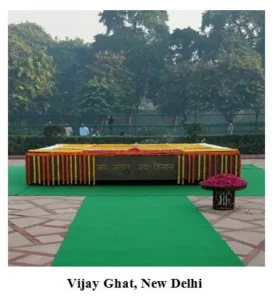
Lal Bahadur Shastri dedicated more than thirty years of selfless service to the nation. His capacity for hard work and his efficiency became famous in Uttar Pradesh. He remained active on many high ranking posts like in the Union Cabinet as Minister of Railways, Minister for Transport and Industry, Home Minister, and during Nehru’s ailment, he was the Minister without Portfolio.
Being a man of character, integrity and earnest nature, he resigned as Minister for Railways because he felt inwardly responsible for a railway accident which had caused loss of many lives. Both the Parliament and the leaders appreciated this act of Shastri Ji. The then Prime Minister Jawaharlal Nehru spoke in the Parliament about Shastri’s integrity and high ideals. Lal Bahadur Shastri was in no way responsible for the accident.
There is one Shastri Bhawan building in New Delhi which is named after Lal Bahadur Shastri. It is located on Dr. Rajendra Prasad Road, Rajpath Area, New Delhi. It is a government building situated in New Delhi. The building houses a number of ministries of Government of India like Human Resource Development, Law and Justice, Information and Broadcasting, Chemicals and Petrochemicals, Women and Child Development, Family Welfare and so on.
Lal Bahadur Shastri was much influenced by the teachings of Mahatma Gandhi. He introduced the slogan ‘Jai Jawan, Jai Kisan’ and it played a pivotal role in shaping the future of India. He also integrated the idea of the Green Revolution to scale up the demand of India’s food production. He had also supported the While Revolution and created the National Dairy Development Board. He favoured the Amul Milk Cooperative based at Anand, Gujarat. He was a highly disciplined person with morals and did not own a car after being raised to the level of Prime Minister. He promoted the idea of secularism and focused his attention to maintain peace. He worked for the economic development and prosperity of the country. He once quoted: “The preservation of freedom is not the task of soldiers alone. The whole nation has to be strong.”
Note: This article is dedicated to Smt. Alka Puri, M.A. (Hindi, B.Ed.). She was the Secretary, Ladies Club, Punjabi University, Patiala during the tenure of Vice Chancellor Dr. S.S. Johal who was awarded with prestigious award Padma Bhushan in 2004. Smt. Alka Puri was the wife of Dr. Ajit Singh Puri and mother of Jaswant Singh Puri.
January 11,2023

